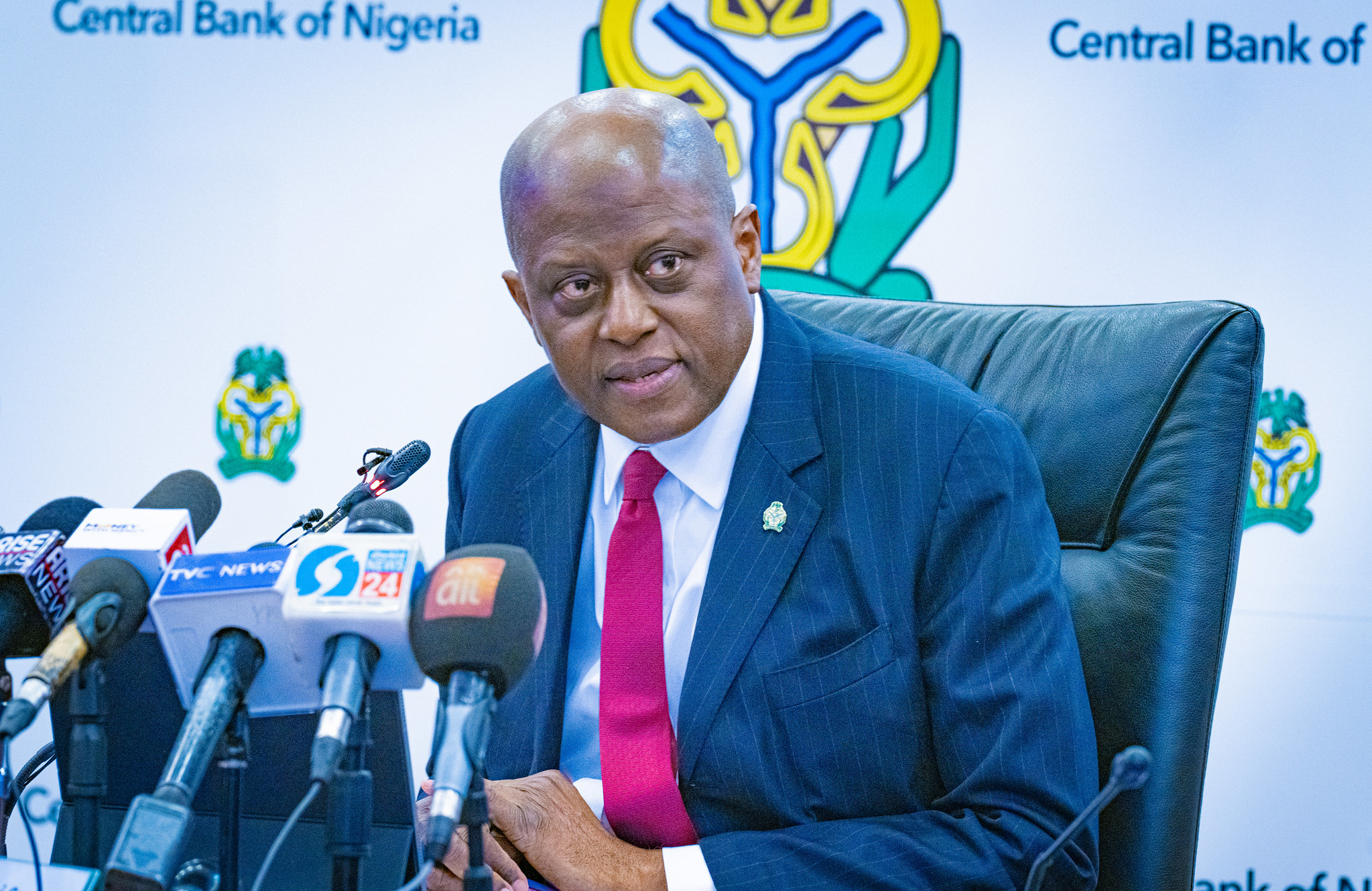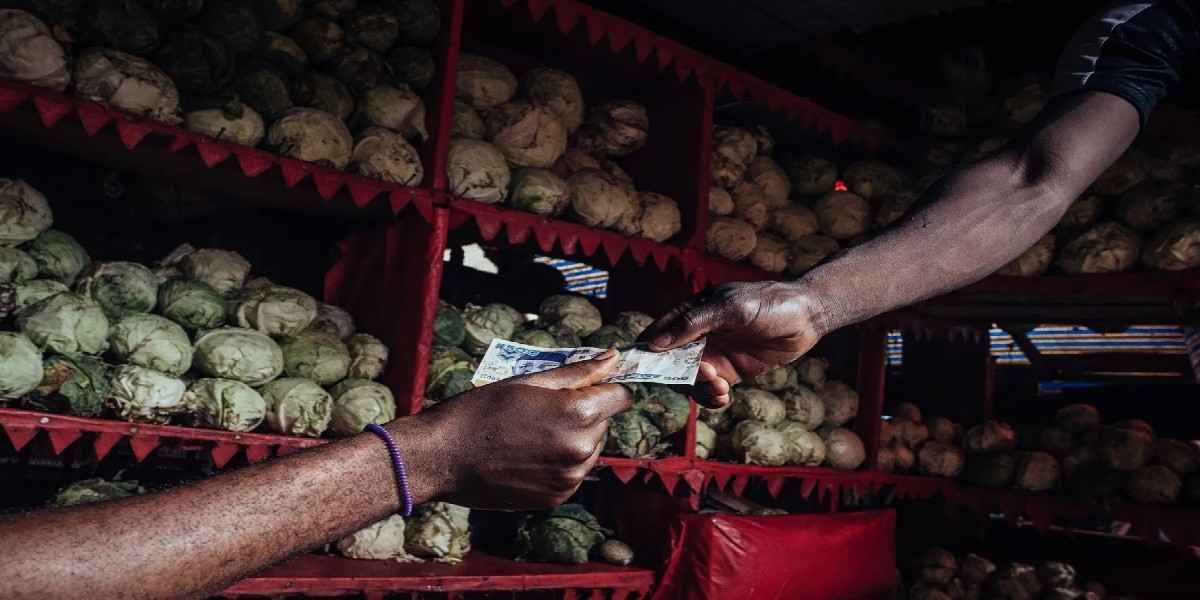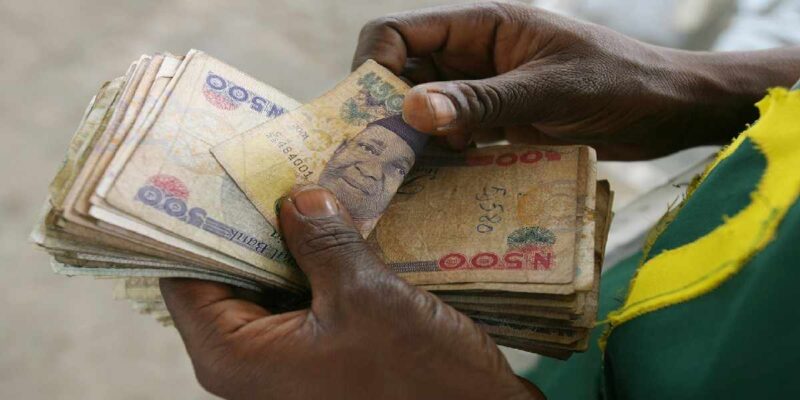New data from the Central Bank of Nigeria (CBN) reveals that over 90% of Nigeria’s cash, approximately ₦4.47 trillion, is being held outside the banking system. Despite a decrease in the total money supply in September, the amount of cash held by individuals and businesses saw a slight increase.
This means that many Nigerians still prefer holding onto physical money instead of keeping it in banks. The trend points to a deeper problem: people’s growing distrust of the banking system and the dominance of informal trade across the country.
According to the CBN’s Money and Credit Statistics report, Nigeria’s total money supply (known as M3) dropped to ₦117.78 trillion in September 2025 from ₦119.69 trillion in August, a decline of ₦1.91 trillion, or about 1.6 per cent.
Despite an overall decrease in money circulation, physical currency outside banks increased slightly by ₦14.7 billion (0.3%) during the same period, indicating a preference for holding cash.

Why most of Nigeria’s cash is sitting outside banks
The CBN defines “currency in circulation” as all the cash issued by the apex bank and available to the public. In September, that total stood at ₦4.95 trillion. Of that amount, ₦4.47 trillion, representing 90.2 per cent, was held outside banks.
In simpler terms, for every ₦10 in circulation, only about ₦1 was in banks. The rest was sitting in people’s pockets, homes, shops, and small businesses.
For months, a large proportion of cash has remained outside banks. While the ratio has slightly decreased since September 2024, when it peaked at 93.2%, the total volume of money outside banks has increased by approximately ₦450 billion over the past year; in August 2025, it was 90.3%.
More people are choosing hard currency over bank deposits. Market traders, for instance, often prefer cash to avoid transfer delays and fees. Similarly, artisans, bus drivers, and street vendors rely on cash due to the unreliability of digital payments, particularly in areas with poor network coverage.
Analysts attribute Nigeria’s heavy cash reliance to persistent problems within its financial system. High transaction costs, lack of confidence in banks, and restricted digital banking access drive dependence on cash, which many informal economy participants perceive as more secure and manageable.
CBN’s policies might be keeping cash outside banks
The CBN’s report came shortly after it made its first interest rate cut in five years, lowering the Monetary Policy Rate (MPR) from 27.5 per cent to 27 per cent. The goal was to make borrowing cheaper and boost spending.
However, the bank also tightened how much money commercial banks must keep in reserve. It raised the Cash Reserve Requirement (CRR) to 45 per cent and set a 75 per cent reserve ratio on some government deposits.
This meant that banks had less money available to lend, even though borrowing rates dropped slightly. Consequently, many individuals and businesses chose to keep their funds as hard currency rather than lock them in bank accounts with low returns and strict lending conditions.


Throughout 2025, cash held outside banks remained consistently high, starting at ₦4.74 trillion in January, representing approximately 90.4% of total cash, and fluctuating slightly above that percentage for the remainder of the year.
Also read: New CBN ATM Operations guidelines: Here are 10 key rules that you must know
Cash hoarding in Nigeria is a persistent behaviour driven by the 2023 naira redesign crisis, which caused widespread cash scarcity and eroded trust in banks. Fear of a repeat motivates many to keep physical money readily available.
What this means for the economy
Experts say this high level of cash outside banks makes it harder for the CBN to control inflation or stimulate the economy. When too much money circulates outside the banking system, monetary policies such as interest rate adjustments lose their impact.
It also slows down the growth of digital transactions and makes it difficult for the government to track or tax economic activities. Most small businesses in the informal sector do not register their transactions, meaning billions of naira move around daily without entering the formal economy.
For banks, the trend limits how much they can lend to support businesses. The less money they hold, the fewer loans they can give to companies that need capital. This reduces job creation and slows investment.
For everyday Nigerians, the habit reflects survival instincts. With unreliable internet, frequent bank network failures, and rising transaction fees, many people see cash as the only dependable option. Some prefer to save in cash to avoid charges that come with maintaining a bank account or using ATMs.


However, experts warn that keeping large amounts of money outside banks carries risks, from theft and loss to inflation eroding the value of cash over time.
The figures tell a clear story: Nigeria’s economy still runs mostly on cash. Even as digital payment systems like Opay, PalmPay, and bank apps become more common, most people still rely on physical money for daily transactions.
This reflects both economic realities and the structural weaknesses in Nigeria’s financial system. Until more Nigerians can access affordable and reliable banking services, especially in rural and low-income communities, the cycle is likely to continue.








